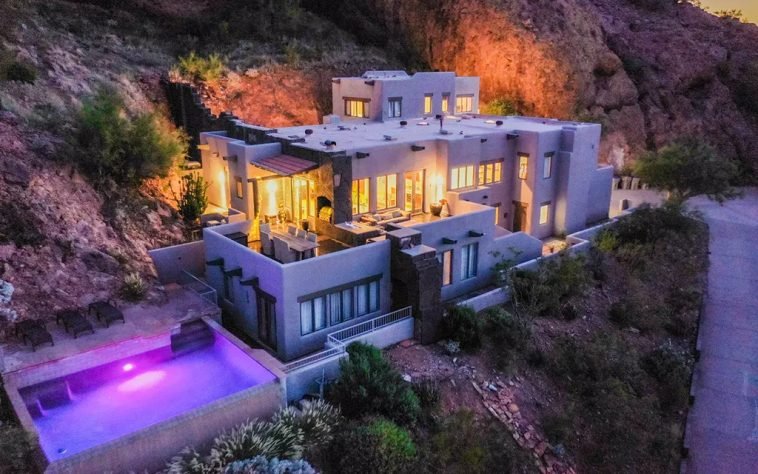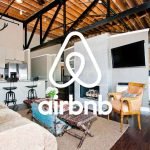Introduction.
Running a successful Airbnb can be incredibly rewarding, both financially and personally, but there’s a trick to maximizing your bookings.
Whether you’re just starting or have been hosting for years, the goal is clear: get more bookings, make your guests happy, and turn a good profit. So, how can you stand out from the competition and attract more guests?
Let’s explore some of the most effective strategies for boosting your Airbnb bookings, from optimizing your listing and improving your guest experience to mastering pricing and knowing your target audience.
How Do I Increase My Airbnb Bookings?
1. Optimize Your Listing Photos and Description
A good listing starts with eye-catching photos and a compelling description. Think about it – the first thing potential guests notice is the photos.
According to Airbnb, hosts who add professional photos to their listing can earn up to 40% more compared to those who use lower-quality photos.
Try taking photos during the day to maximize natural light, capture multiple angles of each room, and highlight unique features like a cozy fireplace or an inviting patio.
When writing your description, be detailed yet concise. Mention everything a guest would want to know: size, location, nearby attractions, and amenities.
Avoid phrases like “beautiful home” and “perfect for everyone” and instead describe specific benefits, like “walking distance to the beach” or “quiet neighborhood, ideal for a peaceful retreat.”
Pro Tip:
Include captions with each photo to give guests extra context. Something like, “Master bedroom with blackout curtains for a great night’s sleep” can be surprisingly effective.
2. Price Smartly with Seasonal and Competitive Pricing
Pricing is one of the trickiest parts of Airbnb hosting. You don’t want to charge too much and scare off guests, but you also don’t want to set prices so low that you’re losing out.
One smart approach is to use Airbnb’s Smart Pricing tool, which automatically adjusts your pricing based on demand in your area, upcoming holidays, and other factors. Still, it’s worth doing your own research.
Check similar listings in your area and see how they price during different seasons and events. Adjust accordingly to stay competitive.
Pros of Dynamic Pricing:
- Maximizes revenue: Adjusts to demand.
- Less manual work: Automated pricing updates save you time.
Cons of Dynamic Pricing:
- Risk of low pricing: You might end up with lower-than-expected bookings.
- Less control over pricing: Some hosts prefer setting their own prices.
Quick Tip:
Consider adjusting your prices slightly lower on weekdays and higher on weekends and holidays, especially if you’re in a tourist-heavy area.
3. Emphasize Guest Experience and Communication
Good communication is a must. Most guests appreciate clear, quick, and friendly communication, from the booking process to check-in and beyond.
Use Airbnb’s messaging feature to respond to inquiries as quickly as possible – ideally within an hour. If you can’t be online constantly, consider using automated responses for common questions or to confirm bookings.
A positive first impression can make all the difference. Send a welcoming message before check-in and offer any assistance they may need.
During their stay, a simple message to check in or recommend some local favorites shows guests you care.
Extra Tip:
Consider small touches that enhance guest experience, like a welcome guide, snacks, or even a local map with recommendations. It’s those little details that guests remember and rave about in reviews.
4. Leverage Reviews and Social Proof
Reviews can be a powerful influence on booking decisions. Airbnb data shows that guests are significantly more likely to book listings with positive reviews, with Superhosts often seeing the most benefit.
Encourage guests to leave a review by mentioning it in your post-stay message, and always leave a review for them as well. The more five-star ratings you can get, the better your listing will perform.
Common Ways to Encourage Reviews:
- Politely remind guests to leave a review if they enjoyed their stay.
- Thank them in advance and emphasize how reviews help improve the experience for future guests.
- Leave them a review first; it often prompts guests to return the favor.
5. Understand and Appeal to Your Target Audience
Not all guests are the same. Some may be solo travelers looking for budget stays, while others are families in search of a spacious home. Identify who your target audience is and tailor your listing to meet their needs.
For example, if you’re targeting families, ensure your property has family-friendly amenities like high chairs, a crib, or board games.
If you’re going for a luxury vibe, offer extras like high-quality toiletries, a coffee machine, or premium bedding.
Pros and Cons of Targeted Hosting
Pros:
- Better guest satisfaction: You’re more likely to meet specific needs.
- Increased chances of positive reviews: Guests feel understood and catered to.
Cons:
- Potential for fewer bookings from other groups: Tailoring to a niche can mean missing out on other travelers.
- Higher costs for specific amenities: Extra features can add to your budget.
6. Market Outside Airbnb to Increase Exposure
Don’t just rely on Airbnb alone. Consider using social media platforms like Instagram, Facebook, or even local tourism sites to promote your listing. Instagram, in particular, works well for showcasing visually appealing properties. Hashtags like #airbnbstay, #vacationrental, or tags related to your location can attract people searching for places in that area.
FAQ Section
Q1: How important are professional photos for my Airbnb listing?
Absolutely. Professional photos can increase your booking rate by up to 40% compared to low-quality images. Investing in good photography is often worth it.
Q2: How fast should I respond to guest inquiries?
Aim to respond within an hour if possible. Quick responses make a great first impression and show potential guests that you’re attentive.
Q3: Should I allow instant booking?
Instant booking can help increase bookings since guests prefer a quick confirmation. However, if you want to vet guests before booking, you may prefer to keep it off.
Q4: Is it okay to decline a booking request?
Yes, but keep in mind that Airbnb tracks your acceptance rate. Declining frequently could impact your listing’s visibility.
Conclusion
Increasing Airbnb bookings comes down to a mix of quality, strategy, and hospitality. Every part of your listing, from the photos and pricing to the guest experience and reviews, plays a role in attracting more guests.
By focusing on what makes your property unique and offering a welcoming stay, you’re well on your way to boosting those bookings.
What’s one change you’re planning to make to get more bookings?





GIPHY App Key not set. Please check settings